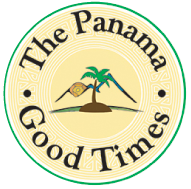
17 Oct PANAMANIAN COFFEE BREAKS WORLD RECORD AGAIN
Once again Panama sets a world record in coffee and this time producer Ninety Plus managed to sell a prototype of coffee grown in Volcano, Chiriqui to The Espresso Lab in Dubai for $ 10,000 per kg. With this sale, Ninety Plus breaks its own record of $ 5,001.50 / kg, set at an auction in 2017. This experimental coffee is grown on the land where the last 7 eruptions of the Baru Volcano occurred, making this a very fertile site for production.
Ninety plus is an avant-garde coffee in the industry and has transformed the production model with environmental, social and sensory innovations both in Panama and in Ethiopia. This success story began with a recent visit made by the founder of The Espresso Lab, Ibrahim Al Mallouhi, to the Panamanian coffee farm, where he tasted some experimental coffees and was surprised by the sensory experience, thus baptizing one of them “The Unmatched.”
But why is Panama coffee one of the best? In itself, the coffee bean of Panama has one of the best qualities that continues to improve year after year. For instance, geisha coffee is one of the most exclusive varieties among coffee lovers worldwide and its harvest is made in the highest lands of the province of Chiriqui. The recognized international tasting competition called The Best of Panama was recently held in the country, in which the award-winning coffee bean was grown at 1,800 meters above sea level. This unique coffee bean received the best score in the competition, where three of the 17 international judges gave it 97 points.
Today, Panama holds the world record for the pound of Boquete geisha coffee and produces some of the most sought-after high-rise coffees in the world. Due to the impact of coffee production in this area, the famous “Coffee Circuit” has been developed. This is a tourist product that seeks to highlight the value of the coffee production in this region which encloses amazing coffee landscapes, unique adventures and great biodiversity, featuring coffee farms in the districts of Boquete, Tierra Altas and Renacimiento.



